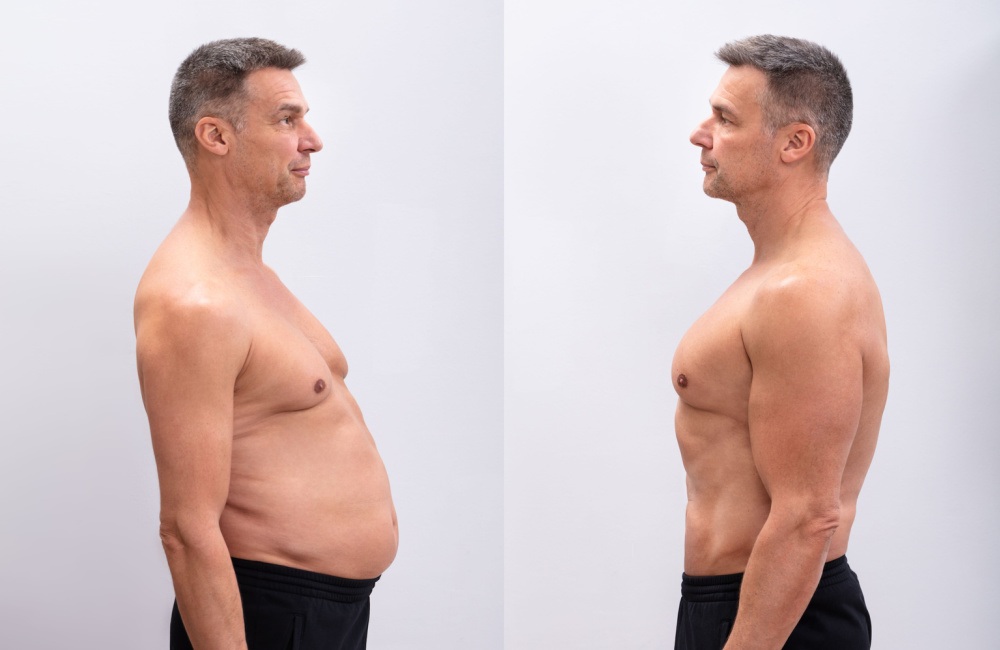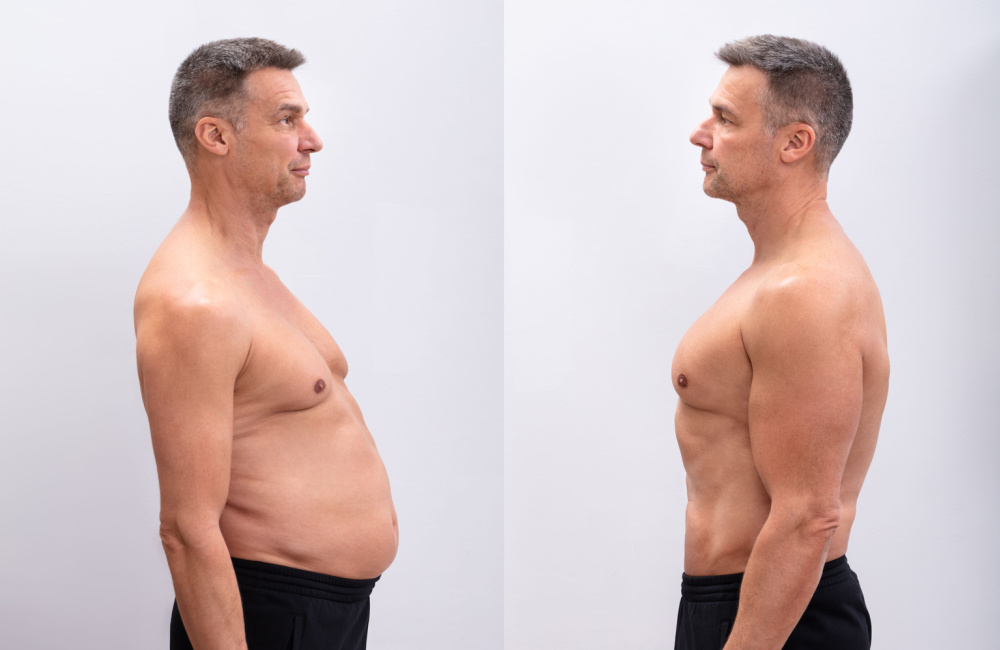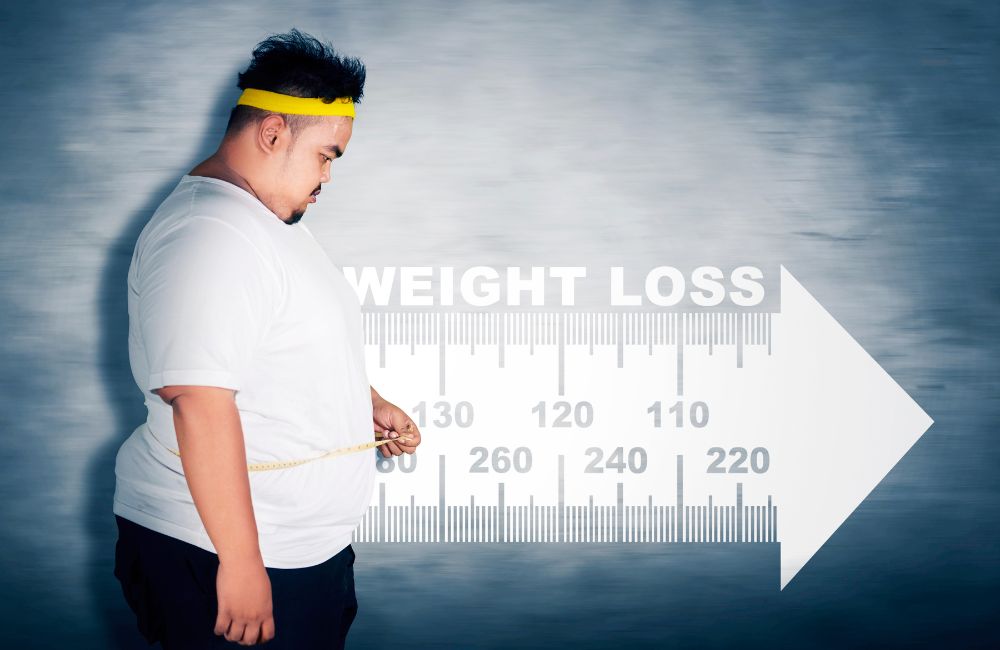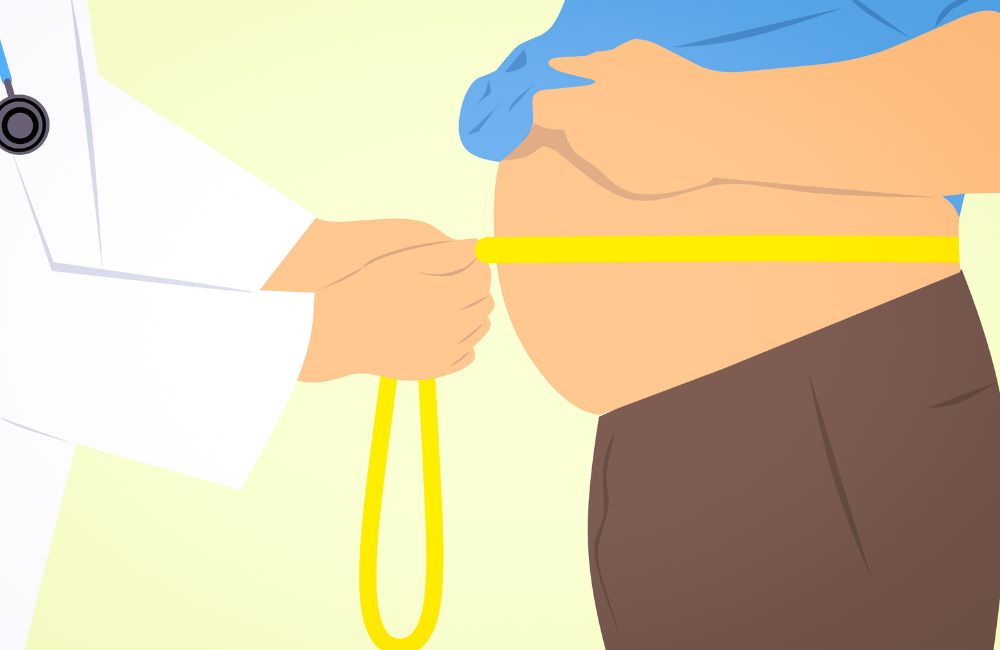
Losing weight can get increasingly more difficult after 50. That’s because it’s around the time your body goes through numerous changes, and the way you treat it needs to begin to change.
As you age, your metabolism may see a natural drop as you experience age-related muscle loss. Consequentially, your body may begin to burn fewer calories than you once were used to and pack on more fat than ever before.
This all brings new challenges to weight loss.
But losing weight is still very much possible. It just has to look a little different and adapt well-adjusted, effective tips to drop pounds and boost health.
Here are 8 effective and simple tips to lose weight after 50.
How to Lose Weight After 50

You may also like:
7 Best Exercises to Lose Belly Fat After 50, Trainer Says
How To Lose Weight Fast As Possible: 8 Science-Backed Tips
1. Shift the Way You Think About Food
Restricting food might seem like the logical way to lose weight, but this strategy can backfire.
Denying your body the nutrients it needs might be a sacrifice to your health. Furthermore, it may slow down your metabolism. When you restrict calories, your body goes into survival mode.
This hibernation-like state causes your body to become more efficient at storing fat. Instead of viewing food as the enemy, think of food as nourishment, medicine, and energy.
Think about eating nutrient-dense, whole foods as a way of life versus a temporary diet.
2. Incorporate Mindfulness
Incorporate mindfulness into everything you do, especially while you eat. Rushing while you eat can lead to mindless eating. This is a distracted state where you are disconnected from experiencing food and your body.
The following tips can help you to slow down and enjoy your food. When you eat, make sure you are sitting down at a table. It’s difficult to enjoy food if you are standing or driving.
Limit distractions — turn off the television and put your cell phone away. Pay attention to each bite of food — notice the textures and flavors. Put your fork down between bites and chew your food completely before swallowing.
Learn to listen to hunger and fullness signals. If you find that you’re no longer hungry, it’s okay to save some of your food for later.
3. Focus on Whole Foods
Focus on nourishing your body with whole foods versus processed foods. Whole foods are unprocessed (or minimally processed) foods that remain as close as possible to their state in nature. Examples include whole grains, fruits, vegetables, legumes, nuts, seeds, meat, chicken, eggs, and some dairy products.
The benefits of a whole foods diet are twofold. Avoiding processed foods will keep chemicals, unhealthy additives, and preservatives to a minimum. And choosing whole foods will provide your body with the proper nutrition you need to stay healthy and maintain a healthy weight.
4. Eat More Vegetables
Vegetables are packed with key nutrients, including fiber, that can help keep you full and maintain a healthy digestive system. And because they are low in calories, they can help you maintain a healthy weight.
Try including a vegetable with each meal and snack. Keep your fridge stocked with raw veggies that you can snack on instead of processed snacks. Including carrots, sugar snap peas, jicama, cherry tomatoes, broccoli florets, and cucumbers. During meals fill half of your plate with veggies.
5. Boost Protein Intake
Boosting protein intake is important as you age for several reasons. Protein is a key nutrient for muscle and bone health. Adequate high-quality protein can help protect against the age-related loss of muscle mass and strength.
Dietary protein is also a key nutrient for weight management. Including a protein-rich food with each meal and snack can help combat hunger cravings and keep you feeling full for longer. The power of protein to keep you satiated can lead to a decrease in the number of calories you consume.
6. Stay Hydrated
Drinking water can help you manage your weight in a variety of ways. Your body is about 60% water, so the more hydrated you are the more efficient your body will run. When all systems are running smoothly, especially the digestive and metabolic systems, it’s much easier to manage weight.
Drinking water may also help to keep your appetite in check. For example, there are times when you might mistake thirst for hunger.
And you consume food when what your body really needs is a glass of water.
Plain water is best for hydration, but it isn’t the only beverage that can keep you hydrated. Unsweetened alternatives include lemon or lime water, unsweetened iced tea, and sparkling water.
7. Exercise Regularly
To combat aging and the natural decline in muscle mass, daily exercise is a must — for a minimum of 30 minutes. Working out revs up your metabolism, builds muscle, and increases the number of calories you burn each day.
Make sure to choose activities that are enjoyable to you. So that you look forward to daily exercise. If you enjoy the outdoors, try a 30-60 minute walk, hike, or bike ride.
If you love water, go for a swim. If you are limited with time try a 20-minute walk in the morning and a 20-minute walk in the evening. Even yard work and gardening can help you stay fit. Just keep your body moving.
8. Get a Quality Night’s Sleep
Adequate sleep provides a multitude of health benefits. Sleep is intricately involved with various hormonal and metabolic processes in the body.
Multiple studies have linked sleep deprivation to obesity risk. To get quality sleep, make sure your bedroom is cool, dark, and quiet, and cell phones are turned off.
The Bottom Line
Weight loss after 50 can be challenging due to age-related decreases in metabolism and muscle mass. But certain diet and lifestyle tweaks can help you counter the effects of aging.
While dieting is often the go-to solution for weight loss, this strategy usually backfires. Instead, choose to look at healthy living as a way of life. Choose to nourish your body with nutrient-dense, whole foods.
Make sure to stay hydrated, exercise daily, and get a quality night’s sleep. When you shift your focus from weight to wellness, you will see results.


